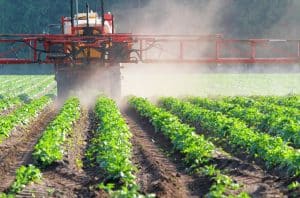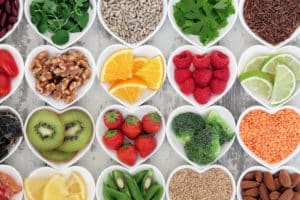Are Organic Foods Pesticide Free?
 Organic foods are not necessarily completely pesticide-free, but they are produced using significantly fewer synthetic pesticides compared to conventionally grown foods. Organic farming practices prioritize the use of natural and non-synthetic methods for pest and weed control. Some key points regarding pesticides in organic farming are:
Organic foods are not necessarily completely pesticide-free, but they are produced using significantly fewer synthetic pesticides compared to conventionally grown foods. Organic farming practices prioritize the use of natural and non-synthetic methods for pest and weed control. Some key points regarding pesticides in organic farming are:
Natural and Organic Pesticides: Organic farmers use natural and organic pesticides that are derived from natural sources, such as plant extracts or beneficial insects, to manage pests and diseases. These substances are generally considered less harmful to human health and the environment compared to synthetic pesticides.
Restricted Use of Synthetic Pesticides: Organic farming regulations vary by country, but they typically limit or prohibit the use of synthetic pesticides. When synthetic pesticides are used in organic farming, they are subject to strict regulations regarding their safety and environmental impact.
Integrated Pest Management (IPM): Organic farming often employs integrated pest management (IPM) strategies, which focus on preventive measures, biological controls, and non-chemical methods to minimize the need for pesticides.
 Residue Levels: While organic foods are expected to have lower pesticide residues than conventionally grown foods, they may still contain trace amounts of natural or synthetic pesticides due to factors like environmental contamination or drift from neighboring farms.
Residue Levels: While organic foods are expected to have lower pesticide residues than conventionally grown foods, they may still contain trace amounts of natural or synthetic pesticides due to factors like environmental contamination or drift from neighboring farms.
It’s important to note that organic certification standards vary by country and region, so the specific rules regarding pesticide use may differ. If you are concerned about pesticide residues in your food, you can wash and peel fruits and vegetables or choose organic products to reduce your exposure to synthetic pesticides. However, keep in mind that organic foods may be more expensive, and their availability can vary depending on where you live.
